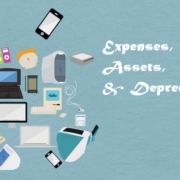How to Stay Protected from Tax Fraud and Scams in Southern California
Have you received an email claiming to be from the IRS that doesn’t sit right? Or perhaps a phone call demanding immediate payment? These are typical examples of IRS tax scams targeting individuals and businesses. For small business owners in Southern California, it’s critical to recognize, avoid, and report such scams while working with reliable professionals like Summerhill Tax Services for expert tax preparation and guidance.
Understanding IRS Tax Scams
Scammers are getting more sophisticated at impersonating the IRS or tax professionals. These scams exploit common fears about audits, penalties, and late payments. Small business owners are vulnerable as they regularly interact with forms, payments, and compliance procedures.
Fake IRS notices sent via email, text, phone call, or even mailed letters often ask for personal information or instant payments. Recognizing the red flags is the first step to protecting your finances and personal data from fraud.
Tips to Recognize and Avoid Tax Scams
Here are actionable ways to stay one step ahead of scammers targeting your business or personal taxes.
1. Know How the IRS Communicates
Legitimate communication from the IRS will never include threatening phone calls, demands for gift cards, or unsolicited emails requesting sensitive information. They typically send notices via mail first.
How Summerhill Tax Services Can Help:
Summerhill Tax Services continually reviews any IRS correspondence you receive to confirm legitimacy. If you’re unsure, bring it to our office in Murrieta, and our seasoned tax professionals will guide you.
2. Beware of Phishing Scams
Phishing emails and websites are among the most common ways scammers steal information. These emails often contain links or attachments that compromise your data.
Pro Tip: Never click on suspicious links or share financial details online unless you’ve verified the source.
3. Use Trusted Tax Preparation Services
Working with dependable professionals for tax preparation reduces the chances of errors and fraudulent filings. Scammers often use fake tax preparer credentials to lure victims.
Why Choose Summerhill Tax Services:
We’ve been helping Southern California businesses safeguard their tax filings with 15+ years of expertise. Unlike fly-by-night preparers, we’re available year-round to offer continued support.
4. Protect Sensitive Information
Never share your Social Security number, EIN, or banking details without verifying the recipient. Store sensitive documents securely and dispose of old records properly.
5. Watch Out for Fraudulent Refund Schemes
Some scams trick victims by offering inflated refunds for personal details. Remember, legitimate tax consultants will never promise substantial refunds or deposit money directly into their accounts.
Summerhill Tax Safeguards:
Our tax experts ensure every refund claim complies with IRS rules, eliminating the risk of fraudulent claims under your name.
6. Report Scam Attempts
If you encounter suspicious activity, report it immediately to the IRS (use form 14039 for identity theft or visit the IRS’s scam reporting page). Reporting helps reduce their prevalence.
Why Professional Expertise Matters for Small Businesses
Tax-related scams can be especially damaging to small business owners, leading to penalties, data loss, or even identity theft. However, by working with trusted tax professionals like Summerhill Tax Services in Southern California, you can significantly mitigate these risks.
At Summerhill, we combine expert tax preparation with proactive fraud protection. Our team knows the Murrieta area well and understands small businesses’ unique challenges. Whether it’s reviewing IRS correspondence, providing secure tax filing, or offering reliable consultation, we’re committed to supporting your business year-round.
Secure Your Business with Confidence
Protecting yourself from tax fraud and scams begins with staying informed and working with seasoned professionals. Don’t leave your finances or personal data to chance. With Summerhill Tax Services, Southern California businesses can rest assured their taxes are in expert hands.
Learn more about how we can help safeguard your tax filings. Contact us today for a free consultation, or stop by our office in Murrieta.





